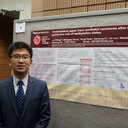Naringenin prevents TGF-β1 secretion from breast cancer and suppresses pulmonary metastasis by inhibiting PKC activation.
Keywords
Abstract
BACKGROUND
Targeting the TGF-β1 pathway for breast cancer metastasis therapy has become an attractive strategy. We have previously demonstrated that naringenin significantly reduced TGF-β1 levels in bleomycin-induced lung fibrosis and effectively prevented pulmonary metastases of tumors. This raised the question of whether naringenin can block TGF-β1 secretion from breast cancer cells and inhibit their pulmonary metastasis.
METHODS
We transduced a lentiviral vector encoding the mouse Tgf-β1 gene into mouse breast carcinoma (4T1-Luc2) cells and inoculated the transformant cells (4T1/TGF-β1) into the fourth primary fat pat of Balb/c mice. Pulmonary metastases derived from the primary tumors were monitored using bioluminescent imaging. Spleens, lungs and serum (n = 18-20 per treatment group) were analyzed for immune cell activity and TGF-β1 level. The mechanism whereby naringenin decreases TGF-β1 secretion from breast cancer cells was investigated at different levels, including Tgf-β1 transcription, mRNA stability, translation, and extracellular release.
RESULTS
In contrast to the null-vector control (4T1/RFP) tumors, extensive pulmonary metastases derived from 4T1/TGF-β1 tumors were observed. Administration of the TGF-β1 blocking antibody 1D11 or naringenin showed an inhibition of pulmonary metastasis for both 4T1/TGF-β1 tumors and 4T1/RFP tumors, resulting in increased survival of the mice. Compared with 4T1/RFP bearing mice, systemic immunosuppression in 4T1/TGF-β1 bearing mice was observed, represented by a higher proportion of regulatory T cells and myeloid-derived suppressor cells and a lower proportion of activated T cells and INFγ expression in CD8(+) T cells. These metrics were improved by administration of 1D11 or naringenin. However, compared with 1D11, which neutralized secreted TGF-β1 but did not affect intracellular TGF-β1 levels, naringenin reduced the secretion of TGF-β1 from the cells, leading to an accumulation of intracellular TGF-β1. Further experiments revealed that naringenin had no effect on Tgf-β1 transcription, mRNA decay or protein translation, but prevented TGF-β1 transport from the trans-Golgi network by inhibiting PKC activity.
CONCLUSIONS
Naringenin blocks TGF-β1 trafficking from the trans-Golgi network by suppressing PKC activity, resulting in a reduction of TGF-β1 secretion from breast cancer cells. This finding suggests that naringenin may be an attractive therapeutic candidate for TGF-β1 related diseases.





